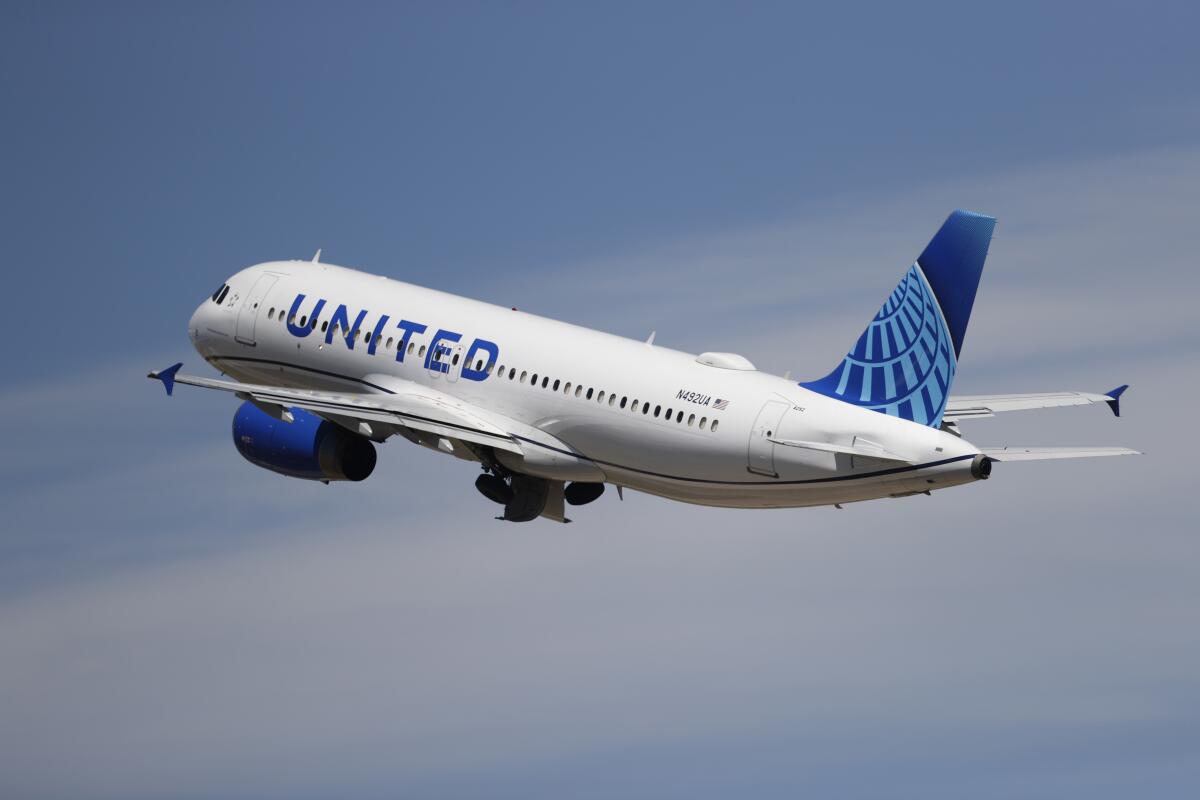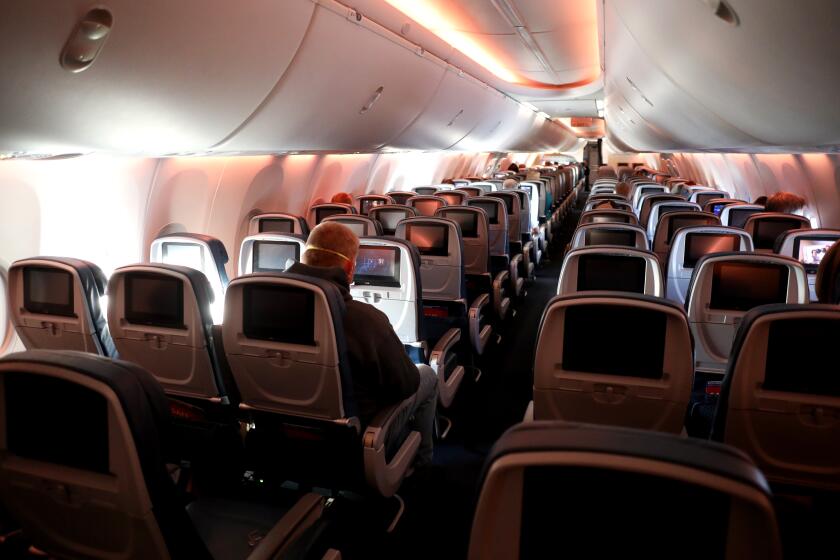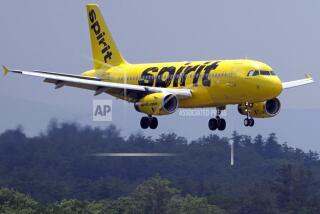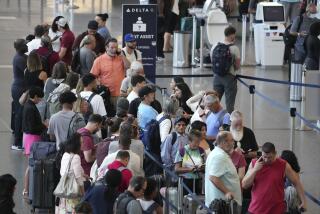United Airlines posts $1.6-billion loss, says it’s shedding 6,000 workers

- Share via
United Airlines Holdings Inc. said Tuesday that it lost $1.63 billion in the second quarter as revenue plunged 87%, and it will operate at barely over one-third of capacity through September as the COVID-19 pandemic throttles air travel.
The Chicago airline burned through $40 million a day in the April-through-June quarter but said it will trim losses to $25 million a day in the current quarter by slashing costs.
Chief Executive Scott Kirby said United cut its cash-burn rate below its closest rivals’ by shrinking its schedule to meet lower demand and cutting costs across the company. In a statement, he said the moves “positioned United to both survive the COVID crisis and capitalize on consumer demand when it sustainably returns.”
Investors will have to wait for United to provide more details about the quarter and future outlook Wednesday, when executives hold a call with analysts and reporters.
Airline trade groups are making the case that the risk of getting COVID-19 on a flight is low.
United, which started the year with 96,000 employees, said 6,000 have volunteered to take severance packages and leave. Last week, the airline warned 36,000 employees that they could be furloughed in October, although executives said they expect the final job-loss number to be smaller.
The quarterly loss, which was bigger than Wall Street expected, followed the plunge in air travel because of widespread travel restrictions and passengers’ fear of flying during the pandemic.
Air travel in the U.S. plunged starting in March, hitting bottom in mid-April at just 5% of the year-earlier traffic. A slow, partial recovery stalled in recent weeks as reported cases of coronavirus surged in many states, particularly in the South and West, and Northeastern states imposed quarantines on visitors from much of the country.
Airline bookings plunged, with United’s hub airport in Newark, N.J., hit especially hard.
Demand for private jet charters has rebounded from the pandemic. Travelers with money are flying again.
U.S. airlines have seen an even sharper drop in international travel. United’s revenue from U.S.-to-Europe flights nosedived 97%, nearly $1.9 billion, in the second quarter.
Kirby and American Airlines Group Inc. CEO Doug Parker appealed on Tuesday to Vice President Mike Pence and European Commissioner for Home Affairs Ylva Johansson to allow more travel between the U.S. and Europe. The United States and the European Union block most of each other’s citizens from entering — each side cites fear that visitors from the other side of the Atlantic could bring the virus with them — although exceptions are made for dual citizens, health workers and a few others.
The U.S. airline leaders, joined by the CEOs of Lufthansa and British Airways’ parent, IAG, said transatlantic travel is important to their airlines and the global economy. They said steps taken by airlines and governments together with a cooperative health-screening program would prevent COVID-19 from spreading among passengers.
Investors have turned their attention to what airlines are doing to raise more cash and cut spending to make that money last as long as possible.
United said it began this week with $15.2 billion in available cash and expects to boost that to more than $18 billion by the end of the third quarter. The airline has mortgaged its MileagePlus frequent-flyer program and agreed to a $4.5-billion secured loan from the Treasury Department, although executives say they might not draw on the government loan. That is on top of $5 billion in taxpayer money to keep workers on the payroll through September.
As a benefit of flying less, United chopped its fuel bill by 90%, saving more than $2 billion. Labor costs fell nearly $900 million.
United’s loss, adjusted to exclude an income tax benefit and other items, was $2.6 billion. A year earlier, the company posted a profit of $1.05 billion.
The adjusted loss worked out to $9.31 a share. That compared with a predicted loss of $8.96 a share, according to a FactSet survey of 17 analysts.
Revenue tumbled from $11.4 billion to less than $1.5 billion, but it still beat analysts’ average forecast of $1.3 billion.
Last week, Delta Air Lines Inc. reported a second-quarter loss of $5.7 billion. The outlook is grim too for American Airlines and Southwest Airlines Co., which are scheduled to release results Thursday.
More to Read
Inside the business of entertainment
The Wide Shot brings you news, analysis and insights on everything from streaming wars to production — and what it all means for the future.
You may occasionally receive promotional content from the Los Angeles Times.











